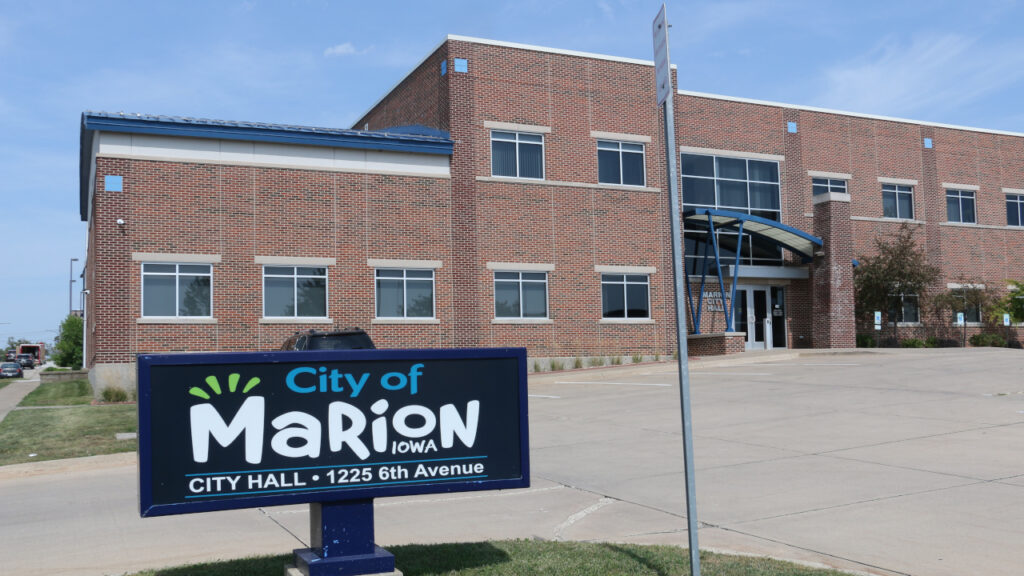Real Success: Mike and Nate Dunn with F&M Bank
Nate Kaeding

Marion City Hall. CREDIT RICHARD PRATT.
Seeking a strategic pause on new projects in some of Marion’s fastest-growing areas, the Marion City Council Oct. 5 approved the first reading of an ordinance that would impose a one-year development moratorium on most commercial developments in those areas.
Broadly speaking, the moratorium would apply to portions of Tower Terrace Road, Highway 13, and the Central Corridor business district in Marion, and according to the council’s agenda, “aims to…

Get immediate, unlimited access to all subscriber content and much more.
Learn more in our subscriber FAQ.
Do you want to read and share this article without a paywall?
